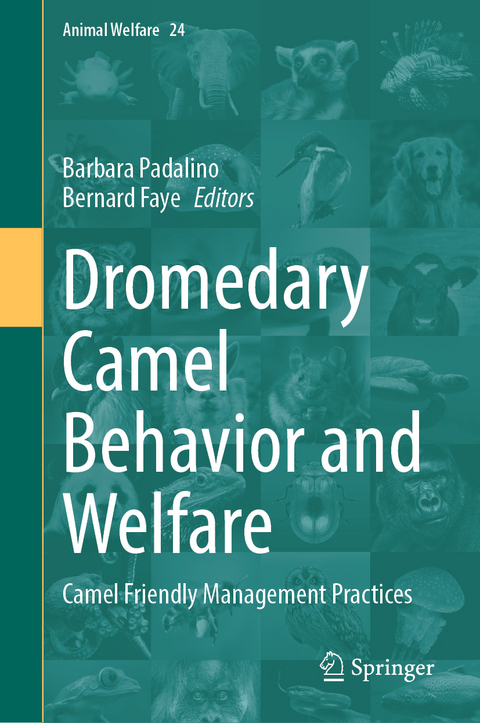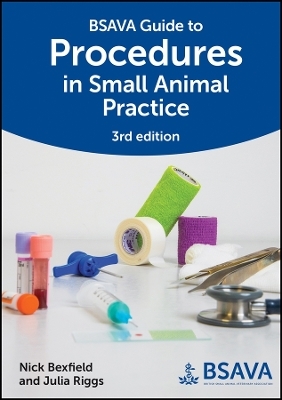
Dromedary Camel Behavior and Welfare
Springer International Publishing (Verlag)
978-3-031-48599-2 (ISBN)
Camels, long confined to desert areas and kept extensively, have recently faced changes in husbandry systems and their environment. Intensification and specialization for milk, meat or sport purpose, as well as new geographic conditions have had significant impact on camel welfare.
This book is a must-read for all camel industry members, breeders, veterinarians, and researchers, who want to practice camel breeding and management while safeguarding the behavioral needs and welfare of these amazing animals.
lt;p>Dr. Barbara Padalino is an associate professor in the Division of Animal Sciences of the Department of Agricultural and Food Sciences, University of Bologna, Italy. She graduated in veterinary medicine from the University of Bari (Italy) and completed her PhD at the University of Sydney (Australia). She is a diplomate of The European College in Animal welfare, ethics and law and a member of the Animal Health Animal Welfare Panel of the European Food Safety Authority. She has more than 20 years of experience in scientific research, teaching and community services. She has published more than 130 articles in indexed journals, participated in several national and international meetings, and supervised the research work of a large number of master's and doctoral students. Her main research interests are behaviour, health and welfare of different species, including dromedary camels, equine internal and sports medicine.
Dr. Bernard Faye is a veterinarian, specialized in tropical veterinary medicine, PhD Paris University and HDR Montpellier University. He lived in Africa for 8 years (Ethiopia, Niger) for research and development activities (1975-1983) before joining the National Institute of Agricultural Research (INRA) as director of ecopathology laboratory. Joining CIRAD (Centre for International Cooperation in Agricultural Research for Development) as Head of Animal Productions Program (1996), then as Scientific project manager (2007). His interest for camels started in Ethiopia in 1975, studying mineral metabolism. Gradually, through his multiple research programs in cooperation and his international network of camel scientists (North, Western and Horn of Africa, Middle-East, India, Central Asia, Latin America), he founded the International Society for Research and Development on Camelids (ISOCARD). From 2010 to2015, he worked in Saudi Arabia as FAO consultant in a camel research center. He is currently emeritus researcher at CIRAD and independent international camel expert. He is also an author of more than 450 scientific publications, 340 communications in national and international conferences, 45 books and chapters in book, 210 technical reports and 12 scientific editions.
Chapter 1: The camels: from domestication to XXIe century.- Chapter 2: How early domestication and modern genomics contribute to camel welfare.- Chapter 3: Welfare assessment in dromedary camels.- Chapter 4: Good feeding: nutrition and feeding of the Arabian camel (Camelus dromedarius).- Chapter 5: Good Housing: Camels and Their Interaction with the Environment.- Chapter 6: Good Health: recognition and prevention of disease and pain in dromedary camels.- Chapter 7: Behaviour: behavioural repertoire and behavioural needs of camels.- Chapter 8: Camel handling & training.- Chapter 9: Welfare aspects of reproductive care and management of dromedary camels.- Chapter 10: Stress transport in the dromedary camel.- Chapter 11: The welfare of Dromedary camels at slaughter.
| Erscheinungsdatum | 23.01.2024 |
|---|---|
| Reihe/Serie | Animal Welfare |
| Zusatzinfo | XIX, 250 p. |
| Verlagsort | Cham |
| Sprache | englisch |
| Maße | 155 x 235 mm |
| Gewicht | 565 g |
| Themenwelt | Veterinärmedizin |
| Schlagworte | animal agriculture • Camel behavior • camel genetics • Camel Health • camel transport • camel welfare • Dairy • Dromedary camel • Feeding • Housing • Hygiene • racing camel • slaughter • welfare assessment |
| ISBN-10 | 3-031-48599-8 / 3031485998 |
| ISBN-13 | 978-3-031-48599-2 / 9783031485992 |
| Zustand | Neuware |
| Informationen gemäß Produktsicherheitsverordnung (GPSR) | |
| Haben Sie eine Frage zum Produkt? |
aus dem Bereich


